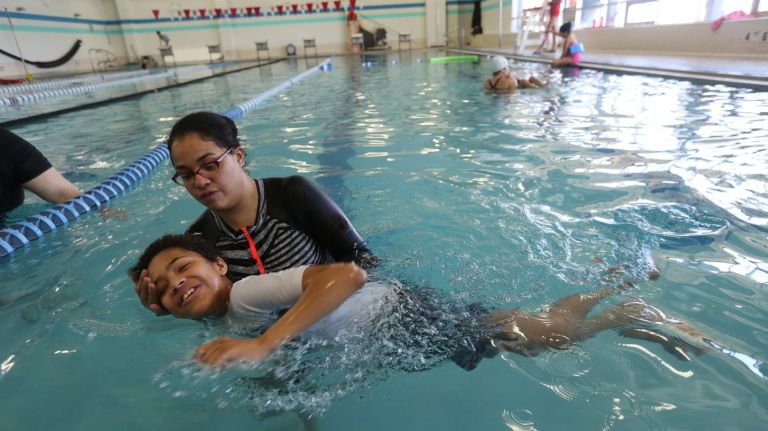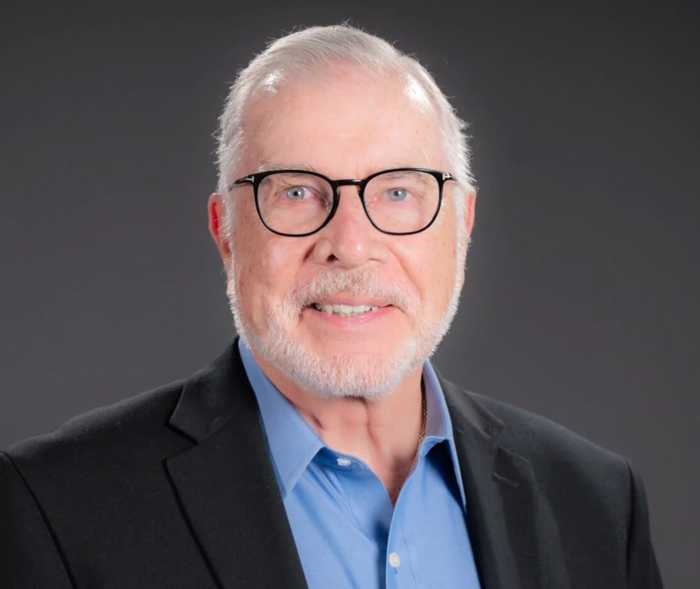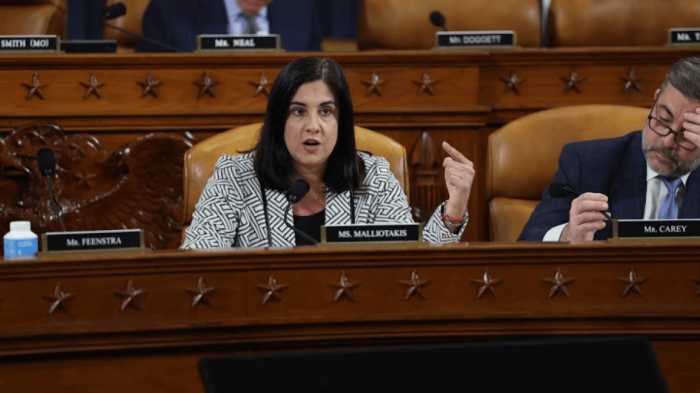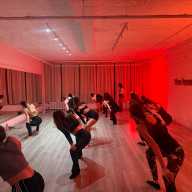
Spending time in the water has always been comforting and natural for Rima Izquierdo.
But sharing that experience with her children was a different story.
The Bronx mom, who has two young sons on the autism spectrum, searched high and low for a swim program that accommodated their needs with no success.
Finally, Izquierdo found the Bronx Y and its adaptive swim program. More importantly, she found willing partners who wanted to learn from her personal experiences.
“They were doing a lot of water acclimation and pre-swimming skills,” she said. “I thought we could build on the program and with a little focus and different approach teach these kids to do more.”
That was more than three years ago. Since then, Izquierdo has worked with the Y on a swim program that offers children of all abilities a chance to feel safe in the water.
She has also brought in guest speakers to discuss the challenges of teaching swimming to children on the spectrum.
“I’m really proud of how Rima has come in and made sure the program is fair and the staff is trained in the right way,” said Sharlene Brown, executive director of the Bronx YMCA.
“I’ve watched parents come in a little frightful but then they see this is an environment where their child is being embraced,” Brown said. “When the parent is relaxed, we know the child is relaxed.”
Izquierdo said the tragic death of Avonte Oquendo, a nonverbal autistic 14-year-old who was able to leave his Queens school unsupervised in 2013, was a “rude awakening.”
The teen’s remains were found in water, although the cause of his death was never determined. Experts have said many people on the autism spectrum are drawn to water.
“My oldest son was very interested in water and that probably made me look for programs,” Izquierdo said. “We need to equip our kids with as many tools as possible.”
Izquierdo tapped into her own research and experiences as a mother of autistic children and swimmer to train instructors.
“I brought in three high functioning and three low functioning children so they would see not all disabilities are physical,” she said. “They have a unique way of learning and sometimes social deficits are beneficial in a teaching setting.”
In some cases, parents accompany their kids in the water to provide another set of helping hands. The first step is to focus on safety and survival skills, like floating and learning to catch a buoy.
“Floating is really difficult for these kids and that’s something we focus on,” she said.
She said it’s also important for instructors to understand some children have a heightened sensitivity to water which can frighten or overstimulate them.
Izquierdo said parents have told her encouraging stories of progress in and out of the water.
“One of the kids has been giving me lots of eye contact,” she said. “It might not seem like a big deal but it’s a big deal to his mom because it’s something he doesn’t do.”
Brown said Izquierdo’s passion has helped a growing number of parents who bring their children to the Y for its adapted programs.
“My one thing is never let anyone tell you what your child can’t do,” Izquierdo said. “Your child has the potential to do anything.”






































